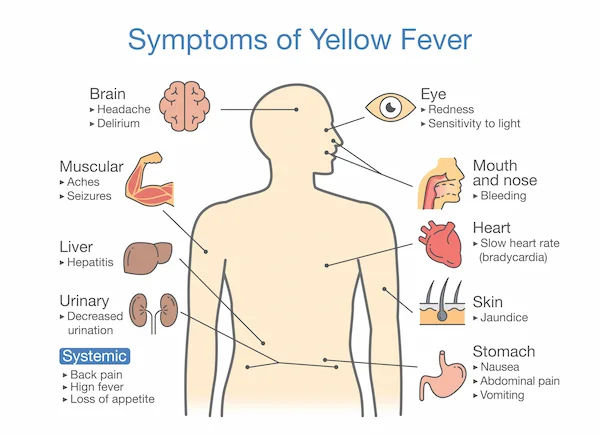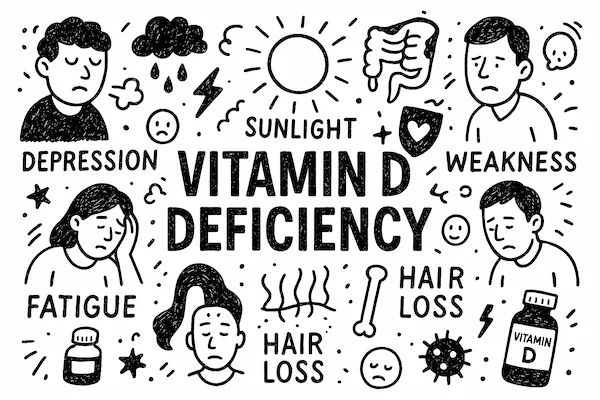Your Guide to Clinical Psychology: Understanding Mental Health and Preventing Suicide
Explore the world of clinical psychology, gain insights into mental health, and learn strategies for suicide prevention. A comprehensive guide for awareness and support.

Written by Dr. Rohinipriyanka Pondugula
Reviewed by Dr. D Bhanu Prakash MBBS, AFIH, Advanced certificate in critical care medicine, Fellowship in critical care medicine
Last updated on 13th Jan, 2026

Introduction
When we talk about health, our mental and behavioural well-being is just as critical as our physical state. Clinical psychology stands at the forefront of understanding, assessing, and treating the vast spectrum of mental health challenges. This field, a core pillar of the behavioural sciences, uses scientifically validated methods to help individuals navigate conditions like depression, anxiety, and trauma—conditions that, at their most severe, can lead to suicidal thoughts. The ultimate goal is not just to treat illness but to foster resilience and prevent crises, including suicidal attempts. This guide will demystify the role of clinical psychology, break down the warning signs of a suicidal crisis, and outline the powerful, evidence-based strategies used for prevention. Whether you're seeking help for yourself or a loved one, or simply wish to be better informed, understanding these principles is a vital step toward saving lives.
What is Clinical Psychology? The Science of the Mind and Behaviour
Clinical psychology is the branch of psychology dedicated to the assessment, diagnosis, treatment, and prevention of mental illness, emotional disturbances, and dysfunctional behaviours. It's an applied science, meaning clinical psychologists use research-based knowledge to help people of all ages improve their mental health and overall quality of life.
The Role of a Clinical Psychologist: Beyond the Couch
A clinical psychologist is a highly trained professional, typically holding a doctoral degree (PhD or PsyD). Their work extends far beyond the stereotypical image of therapy. Their roles include:
Conducting Psychological Assessments: Using interviews, tests, and observations to understand a person's strengths, weaknesses, and symptoms.
Providing Psychotherapy: Offering various forms of talk therapy, such as Cognitive Behavioural Therapy (CBT) or Dialectical Behaviour Therapy (DBT), to address specific issues.
Developing Treatment Plans: Creating tailored strategies to help clients achieve their mental health goals.
Crisis Intervention: Providing immediate support and stabilization during acute mental health crises, which is crucial for suicide prevention.
Clinical Psychology vs. Psychiatry: A Collaborative Difference
While both professions treat mental health conditions, there are key distinctions. Psychiatrists are medical doctors (MD or DO) who can prescribe medication and often focus on the biological aspects of mental illness. Clinical psychologists focus primarily on psychotherapy and behavioural interventions. In practice, they often work together—a psychiatrist might manage medication while a psychologist provides therapy—offering a comprehensive approach to care, especially for complex conditions where suicidal ideation may be present.
The Crisis Point: Understanding Suicidal Behaviour
Suicide is not a character flaw but a tragic potential outcome of untreated mental health disorders. Understanding its components is the first step toward prevention.
Ideation, Intent, and Attempt: Defining the Spectrum
Suicidal Ideation: This refers to thinking about, considering, or planning suicide. These thoughts can range from fleeting to persistent and detailed.
Suicidal Intent: This involves having a specific plan and the intention to act on suicidal thoughts.
Suicidal Attempt: This is a self-injurious behaviour with at least some intent to die.
It's a dangerous myth that talking about suicide will plant the idea. In reality, openly and compassionately discussing these thoughts can be a powerful relief for someone struggling and is a critical first step in getting help.
Key Risk Factors and Warning Signs You Shouldn't Ignore
Recognizing the warning signs of suicidal thoughts can save a life. Risk factors include a history of mental illness (especially depression), substance abuse, previous suicide attempts, and family history. Immediate warning signs include:
Talking about: Wanting to die, feeling hopeless, being a burden to others.
Behavioural changes: Increased use of alcohol/drugs, searching for means online, withdrawing from activities, saying goodbye to people.
Mood swings: Displaying extreme depression, rage, anxiety, or sudden calm after a period of despair.
How Clinical Psychology Prevents Suicide?: Evidence-Based Strategies
Clinical psychologists are equipped with specific tools to address the root causes of suicidal behaviour and build a person's capacity to cope.
Cognitive Behavioural Therapy (CBT): Restructuring Hopeless Thoughts
CBT is based on the idea that our thoughts, feelings, and behaviours are interconnected. For someone experiencing suicidal ideation, negative thought patterns (e.g., "I am worthless," "Things will never get better") can feel like absolute truths. A CBT therapist helps the individual identify these distorted thoughts, challenge their validity, and develop more balanced, realistic perspectives. This process directly targets the hopelessness that fuels suicidal desires.
Dialectical Behaviour Therapy (DBT): Building a Life Worth Living
DBT was developed specifically for individuals with chronic suicidal thoughts and borderline personality disorder. It combines CBT principles with mindfulness and distress tolerance skills. DBT teaches individuals how to regulate intense emotions, tolerate distress without resorting to self-harm, and improve interpersonal effectiveness. It’s a comprehensive therapy for suicidal ideation that focuses on building a life the individual feels is worth living.
Consult an Psychologist
The Importance of Risk Assessment and Safety Planning
A core component of crisis intervention is formal risk assessment. A clinical psychologist will evaluate the severity of ideation, the specificity of a plan, and the individual's access to means. Following this, they collaboratively create a "Safety Plan." This is a step-by-step written list of coping strategies and people to contact when suicidal urges arise, which is a proven method to reduce the risk of a suicidal attempt
What You Can Do?: A Guide for Supporters and Individuals
You don't need to be a professional to make a difference.
How to Talk to Someone You're Worried About?
Ask Directly: "Are you thinking about killing yourself?" This clear question shows you care and are open to talking.
Listen Without Judgment: Let them express their feelings. Avoid offering simplistic solutions like "Just cheer up!"
Do Not Leave Them Alone: If they are in immediate danger, stay with them.
Encourage Professional Help: Gently suggest speaking to a clinical psychologist or counsellor. You can offer to help them find resources or even accompany them to an appointment.
Self-Care and Coping Strategies for Difficult Times
If you are struggling, remember:
You are not alone. These feelings are symptoms of an illness, not a reflection of your worth.
Reach out. Contact a trusted friend, family member, or helpline.
Practice grounding techniques. Focus on your five senses to stay in the present moment.
Avoid alcohol and drugs. They can worsen depressive thoughts and lower inhibitions.
If your thoughts are persistent or include a plan, it is essential to seek immediate professional support. You can consult a clinical psychologist online with Apollo24|7 for a confidential assessment and to begin developing a safety plan.
Creating a Supportive Environment at Home and Work
Reducing stigma is everyone's job. Encourage open conversations about mental health, promote work-life balance, and show empathy. A supportive environment can be a powerful protective factor against mental health crises.
Conclusion
Understanding the principles of clinical psychology and behavioural sciences provides a powerful lens through which to view mental health challenges, especially the profound crisis of suicidal behaviour. It teaches us that suicide is not a choice but a potential consequence of untreated pain, and that through evidence-based interventions, suicidal attempts can be prevented. This guide has outlined the critical role of professional assessment, therapies like CBT and DBT, and the importance of safety planning. But perhaps the most important takeaway is that everyone has a role to play. By educating ourselves, reducing stigma, and learning how to talk openly and supportively, we can all contribute to a safer, more compassionate world. If you or someone you know is struggling, remember that help is available, recovery is possible, and reaching out is the first brave step on that path. If you need immediate support, don't hesitate to book a consultation with a mental health professional on Apollo24|7.
Consult an Psychologist
Consult an Psychologist

Ms Rajashree Navthale
Psychotherapy & Counselling (ASM)
8 Years • MA in Counselling & Psychotherapy, PG Diploma in Counselling & Psychotherapy.
Akola
Connect Counselor, Akola

Miss. Vaishnavi Sankeshwar
Psychologist
5 Years • Msc Clinical Psychology
Bengaluru
Apollo Clinic, JP nagar, Bengaluru

Ms. Monalisa Kha Bhaduri
Psychologist
12 Years • MA Psychology
Kolkata
Ms Monalisa Kha Bhaduri's Clinic, Kolkata
(250+ Patients)

Ms. Sapna Zarwal
Psychologist
20 Years • Msc (Applied Psychology), Ph D ( Special Education)
Gurugram
SOOTHING ZEN, Gurugram
(25+ Patients)

Ms. Gunjan Arya
Psychologist
4 Years • MA Psychology
Delhi
Psych Therapy By Gunjan Arya, Delhi
More articles from General Medical Consultation
Frequently Asked Questions
1. What should I do if someone tells me they are thinking about suicide?
Stay calm, listen without judgment, and do not leave them alone if they are in immediate danger. Encourage them to seek help from a mental health professional or accompany them to the emergency room. You can also contact a suicide prevention helpline together.
2. What is the difference between suicidal thoughts and a suicide attempt?
Suicidal thoughts (ideation) are when a person thinks about ending their life. A suicide attempt is when they engage in a behaviour with the intent to die. All threats and attempts should be taken seriously.
3. Can therapy really help with chronic suicidal thoughts?
Yes, absolutely. Therapies like Dialectical Behaviour Therapy (DBT) were specifically developed for this purpose. They provide practical skills for emotion regulation, distress tolerance, and building a meaningful life, which can significantly reduce the frequency and intensity of these thoughts.
4. How can I create a safety plan for myself?
A safety plan is a personalized, written list of steps to follow during a crisis. It typically includes: warning signs, internal coping strategies, people to contact, professionals to call, and how to make the environment safe. A clinical psychologist can help you create an effective one.
5. Where can I find immediate help in India?
You can contact Vandrevala Foundation Helpline (1860 2662 345) or iCall (9152987821). For ongoing support, consider consulting a therapist through platforms like Apollo24|7, which offer access to qualified mental health professionals.




